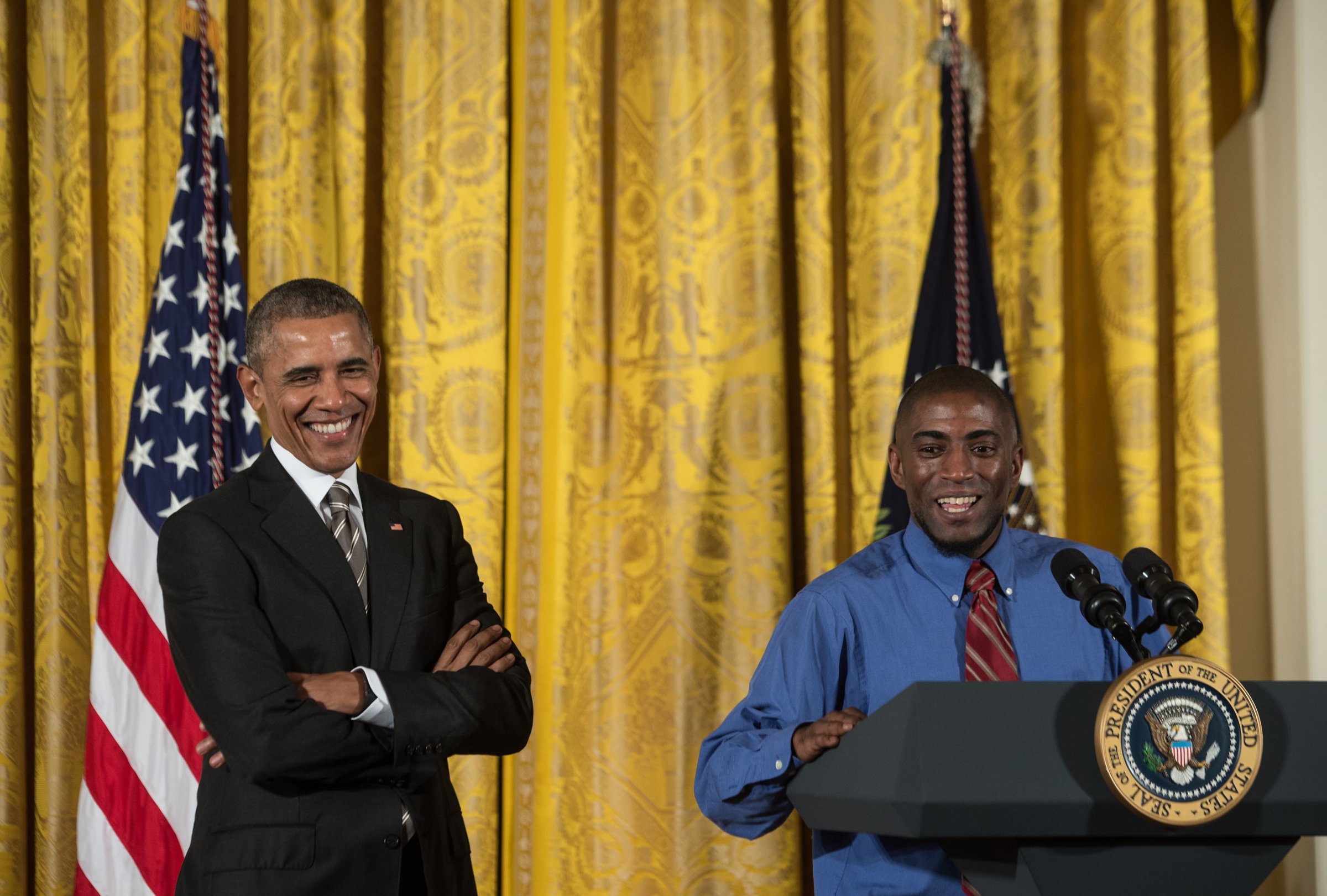
Almost every day, I go to work at a McDonald’s or a Burger King to serve food and keep our customers happy. I am paid $8 per hour.
I’m raising three daughters, and I work hard for them. Like a lot of people across the country, I try to build up my community. I want my family and my city to end up better off than I am.
But like a growing number of ordinary people around the U.S., I worry about whether my kids will get a fair shot at a decent life.
We worry that major corporations like the one I work for can manipulate the rules in their favor. We see how CEOs demand that their employees work more and accept less, which has knocked the entire country off balance.
That is why it is time to rethink how working Americans have a say about our work, about our government and about our communities.
In July of 2013, I went on strike. I had seen how fast-food cooks and cashiers in New York and other cities had started to walk off their jobs because they were sick and tired of being paid wages so low that they could not sustain their families. I joined them to stand up for a $15 wage and the freedom to form unions.
By sticking together, we have made astonishing progress. Citizens and elected representatives in cities across the country have decided to raise their minimum wages. Our movement has expanded and now includes many other underpaid people working in service industry jobs, like childcare workers and home-care workers.
In New York, Governor Andrew Cuomo dusted off a long forgotten law and realized that he had the power to evaluate wage levels in a specific industry and reset the base wage. Using that power the people of New York State have established a new $15 starting wage for more than 150,000 fast food workers.
We aren’t invisible anymore. On Wednesday, I was given the incredible honor of traveling to the White House and introducing President Barack Obama when he convened a historic summit on the future of workers’ voice in America.
This is happening because we are united, and we are building a new kind of movement of working people. We are not just calling for a $15 wage; we’re calling for corporations to respect our right to form unions without retaliation or interference.
Generations of working Americans joined together to organize unions that gave them a seat at the table when decisions about their future were made. They turned jobs that were dangerous and paid very little into work that sustained families, fueled inclusive prosperity, and strengthened thriving communities.
Although working people in our country still have the right to form a union, the reality is that powerful corporate interests are trying to strip us of that right. Many people who do the work I do worry that their job could be at risk if their employer finds out that they are in favor of forming a union.
But the thousands of us who are part of the Fight for $15 movement are determined to build organizations to advocate for our common interests. The entire country will be better off when people like us can sit down with corporations that set the terms of our pay to find agreement on standards that improve jobs and boost the purchasing power of American families.
National polling shows rising support across America for unions. Another new national poll shows overwhelming support for unions among those of us who are paid less than $15 per hour. People are hungry for a more secure future and a better way to counterbalance the massive power that corporations have over the government, the economy, and our lives.
The unions of today were created through laws that were drafted when most Americans worked in a factory. We don’t have to follow that blueprint as we start up the unions of tomorrow. The Fight for $15 movement is ready to be creative and innovative as we launch new kinds of organizations that match the reality of how we work today.
It’s time for corporate CEOs to sit down and listen to working people again.
More Must-Reads from TIME
- Donald Trump Is TIME's 2024 Person of the Year
- Why We Chose Trump as Person of the Year
- Is Intermittent Fasting Good or Bad for You?
- The 100 Must-Read Books of 2024
- The 20 Best Christmas TV Episodes
- Column: If Optimism Feels Ridiculous Now, Try Hope
- The Future of Climate Action Is Trade Policy
- Merle Bombardieri Is Helping People Make the Baby Decision
Contact us at letters@time.com